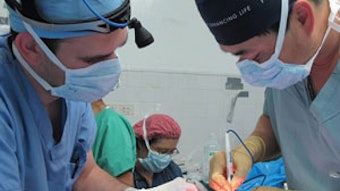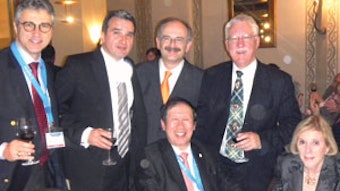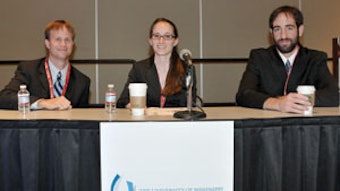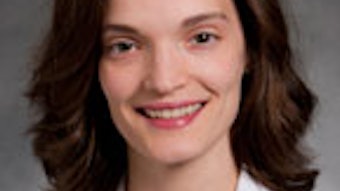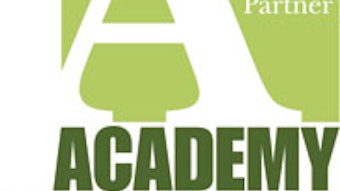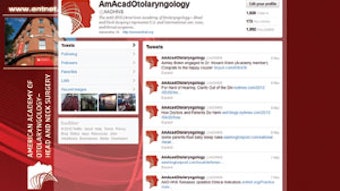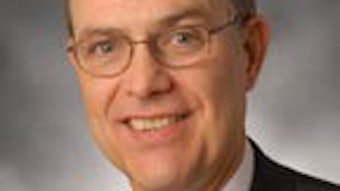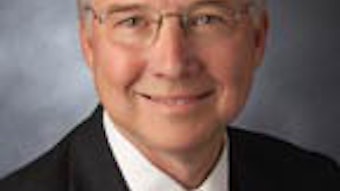AAO-HNS Mid-Year State Legislative Update
Across the nation, 46 state legislatures convened for their regular sessions this year. By the end of July, only five states will remain in regular session as most have already adjourned for the year. As of June 15, more than 79,000 state-based bills had been introduced in the United States in 2012. The AAO-HNS is monitoring more than 740 bills at the state level, including holdover bills from 2011. Of those, there are 42 state legislative bills that have been identified as being of particular importance to the AAO-HNS and its members. We have provided state otolaryngology leaders with customized tracking reports, notifications, and alerts for these legislative bills of interest. Scope of Practice The Academy believes it is appropriate for nonphysician providers to seek updates to statutes and regulations relating to their defined scope of practice to reflect advances in education and training. However, the Academy strongly opposes state legislation that would inappropriately expand the scope of practice for nonphysician providers beyond their skills. Enabling nonphysician providers to independently diagnose, treat, or manage medical disorders could adversely affect the quality of patient care. This year, the Academy has advocated for modifying and/or defeating several potentially harmful bills that would inappropriately expand the scope of practice of nonphysician professionals. The California legislature is considering a bill that would allow audiologists to become qualified medical examiners for workers’ compensation claims. The Academy continues to strongly oppose this legislation. In West Virginia, the Academy successfully opposed a bill regulating the practice of speech-language pathology and audiology. The bill, as proposed, would have inappropriately expanded their scope of practice to allow speech-language pathologists and audiologists to diagnose, manage, and treat. Unfortunately, state legislatures in Colorado and South Dakota adopted scope-of-practice expansion bills for speech-language pathologists. A carry-over bill in New York sought to permit nonphysician oral and maxillofacial surgeons to perform elective surgeries in the oral and maxillofacial regions if granted hospital privileges, the bill died in the Assembly. The Academy worked with other state and national organizations in a coalition to defeat this legislation. Truth in Advertising With the emergence of clinical doctorate programs for nonphysician providers, which has led to many degree holders referring to themselves as “doctors,” there is growing confusion within the patient population about the level of training and education of their healthcare providers. In 2012, truth-in-advertising bills were introduced in Arizona, California, Maryland, Missouri, Nebraska, New York, Utah, and Washington. In Maryland, the legislature passed a bill that requires identification tags and advertisements to show the type of certification the practitioner holds, subject to approval by the state medical board. The Academy, working with other national specialty organizations and the state medical society, developed and advocated for language that closes loopholes, but still works for all Academy members’ board certifications. The Washington legislature considered a bill that would have required advertisements by those who identify themselves as “doctors” to list their license, registration, and/or certifications. Taxes on Medical Procedures Each year, there is a re-emergence of proposals to tax medical procedures, and in light of extensive state budget shortfalls, this year has been no exception. The Stop Medical Taxes Coalition—a coalition of national, state, and local organizations, of which the Academy is a member—asserts that the taxation of medical procedures is unfair for patients and is a “slippery slope” toward the taxation of other medical services. In California, the legislature is considering two separate proposals on taxing cosmetic procedures. The Academy and other Coalition members have submitted written testimony to the California legislature in opposition to the proposed taxes. In 2012, New Jersey signed into law legislation that will gradually repeal the six percent tax currently imposed on cosmetic procedures. The tax will be reduced by two percent each year, for three years, ending with a zero percent tax rate. Hearing Aid Services The coverage, sale, and dispensing of hearing aids is an issue considered by several states in various forms each year. The Academy successfully opposed legislation in Arizona that would have changed the licensure requirements for hearing aid dispensers by removing the practicum examination. In New York, the Academy worked closely with the Patient Access to Hearing Aids (PAHA) Coalition to advocate for a bill that would expand patient access to hearing aid services by striking an archaic law prohibiting physicians from deriving a profit on hearing aid sales. This year, the PAHA Coalition attained introduction of amended companion bills in both the Senate and Assembly. Massachusetts also had legislation seeking to allow otolaryngologists to dispense hearing aids. In addition, several states considered bills to require insurers to cover the cost of, or expand benefits for, hearing aids and/or cochlear implants, including Connecticut, Georgia, Hawaii, Illinois, Kansas, Maine, Massachusetts, Nebraska, New York, Rhode Island, Tennessee, Utah, Vermont, and Wyoming. Several states also considered bills that would provide a tax credit and/or exemption for hearing aids, including Hawaii, Kansas, Michigan, Missouri, New Jersey, and Oklahoma. Tobacco Use and Smoking Cessation The Academy supports legislation and regulations that will help to reduce the use of tobacco products and exposure to secondhand smoke in order to promote healthy environments and lifestyles for the public. This year, bills were introduced in 15 states that sought to strengthen existing smoking ban laws, including California, Iowa, Kansas, Maine, Maryland, Mississippi, Missouri, New Jersey, Oklahoma, Rhode Island, South Carolina, Virginia, and West Virginia. A number of states also considered proposals to mandate insurance coverage and/or benefits for tobacco cessation, including Hawaii, Illinois, Indiana, Massachusetts, New Jersey, New York, and Washington. There are a few states—Alabama, Hawaii, and Illinois—that proposed legislation to exempt certain establishments from a smoking ban, if they pay a fee to become licensed as exempt. Medical Liability Reform This year, there are 10 states that considered various tort reform measures, including those related to affidavits of merit, alternative reforms, caps on non-economic damages, defensive medicine issues, expert witnesses, health courts, or pre-trial screening panels. In Connecticut, there was a proposal to weaken the requirements for Certificates of Merit. The Academy and the state society advocated against this change. New Hampshire and New Jersey are considering enacting or modifying caps on non-economic damage awards in medical liability cases. In Rhode Island, the legislature is considering proposed legislation on apology inadmissibility, and Washington considered a comprehensive medical liability reform bill. For more information about Academy legislative priorities and/or activities, visit the Legislative and Political Affairs website at www.entnet.org/advocacy or email legstate@entnet.org for state legislation inquiries. If you would like to receive timely updates regarding Academy legislative priorities and efforts, join the ENT Advocacy Network by emailing govtaffairs@entnet.org.
Across the nation, 46 state legislatures convened for their regular sessions this year. By the end of July, only five states will remain in regular session as most have already adjourned for the year. As of June 15, more than 79,000 state-based bills had been introduced in the United States in 2012. The AAO-HNS is monitoring more than 740 bills at the state level, including holdover bills from 2011. Of those, there are 42 state legislative bills that have been identified as being of particular importance to the AAO-HNS and its members. We have provided state otolaryngology leaders with customized tracking reports, notifications, and alerts for these legislative bills of interest.
Scope of Practice
The Academy believes it is appropriate for nonphysician providers to seek updates to statutes and regulations relating to their defined scope of practice to reflect advances in education and training. However, the Academy strongly opposes state legislation that would inappropriately expand the scope of practice for nonphysician providers beyond their skills. Enabling nonphysician providers to independently diagnose, treat, or manage medical disorders could adversely affect the quality of patient care.
This year, the Academy has advocated for modifying and/or defeating several potentially harmful bills that would inappropriately expand the scope of practice of nonphysician professionals. The California legislature is considering a bill that would allow audiologists to become qualified medical examiners for workers’ compensation claims. The Academy continues to strongly oppose this legislation. In West Virginia, the Academy successfully opposed a bill regulating the practice of speech-language pathology and audiology. The bill, as proposed, would have inappropriately expanded their scope of practice to allow speech-language pathologists and audiologists to diagnose, manage, and treat. Unfortunately, state legislatures in Colorado and South Dakota adopted scope-of-practice expansion bills for speech-language pathologists. A carry-over bill in New York sought to permit nonphysician oral and maxillofacial surgeons to perform elective surgeries in the oral and maxillofacial regions if granted hospital privileges, the bill died in the Assembly. The Academy worked with other state and national organizations in a coalition to defeat this legislation.
Truth in Advertising
With the emergence of clinical doctorate programs for nonphysician providers, which has led to many degree holders referring to themselves as “doctors,” there is growing confusion within the patient population about the level of training and education of their healthcare providers. In 2012, truth-in-advertising bills were introduced in Arizona, California, Maryland, Missouri, Nebraska, New York, Utah, and Washington. In Maryland, the legislature passed a bill that requires identification tags and advertisements to show the type of certification the practitioner holds, subject to approval by the state medical board. The Academy, working with other national specialty organizations and the state medical society, developed and advocated for language that closes loopholes, but still works for all Academy members’ board certifications. The Washington legislature considered a bill that would have required advertisements by those who identify themselves as “doctors” to list their license, registration, and/or certifications.
Taxes on Medical Procedures
Each year, there is a re-emergence of proposals to tax medical procedures, and in light of extensive state budget shortfalls, this year has been no exception. The Stop Medical Taxes Coalition—a coalition of national, state, and local organizations, of which the Academy is a member—asserts that the taxation of medical procedures is unfair for patients and is a “slippery slope” toward the taxation of other medical services. In California, the legislature is considering two separate proposals on taxing cosmetic procedures. The Academy and other Coalition members have submitted written testimony to the California legislature in opposition to the proposed taxes. In 2012, New Jersey signed into law legislation that will gradually repeal the six percent tax currently imposed on cosmetic procedures. The tax will be reduced by two percent each year, for three years, ending with a zero percent tax rate.
The coverage, sale, and dispensing of hearing aids is an issue considered by several states in various forms each year. The Academy successfully opposed legislation in Arizona that would have changed the licensure requirements for hearing aid dispensers by removing the practicum examination. In New York, the Academy worked closely with the Patient Access to Hearing Aids (PAHA) Coalition to advocate for a bill that would expand patient access to hearing aid services by striking an archaic law prohibiting physicians from deriving a profit on hearing aid sales. This year, the PAHA Coalition attained introduction of amended companion bills in both the Senate and Assembly. Massachusetts also had legislation seeking to allow otolaryngologists to dispense hearing aids. In addition, several states considered bills to require insurers to cover the cost of, or expand benefits for, hearing aids and/or cochlear implants, including Connecticut, Georgia, Hawaii, Illinois, Kansas, Maine, Massachusetts, Nebraska, New York, Rhode Island, Tennessee, Utah, Vermont, and Wyoming. Several states also considered bills that would provide a tax credit and/or exemption for hearing aids, including Hawaii, Kansas, Michigan, Missouri, New Jersey, and Oklahoma.
Tobacco Use and Smoking Cessation
The Academy supports legislation and regulations that will help to reduce the use of tobacco products and exposure to secondhand smoke in order to promote healthy environments and lifestyles for the public. This year, bills were introduced in 15 states that sought to strengthen existing smoking ban laws, including California, Iowa, Kansas, Maine, Maryland, Mississippi, Missouri, New Jersey, Oklahoma, Rhode Island, South Carolina, Virginia, and West Virginia. A number of states also considered proposals to mandate insurance coverage and/or benefits for tobacco cessation, including Hawaii, Illinois, Indiana, Massachusetts, New Jersey, New York, and Washington. There are a few states—Alabama, Hawaii, and Illinois—that proposed legislation to exempt certain establishments from a smoking ban, if they pay a fee to become licensed as exempt.
Medical Liability Reform
This year, there are 10 states that considered various tort reform measures, including those related to affidavits of merit, alternative reforms, caps on non-economic damages, defensive medicine issues, expert witnesses, health courts, or pre-trial screening panels. In Connecticut, there was a proposal to weaken the requirements for Certificates of Merit. The Academy and the state society advocated against this change. New Hampshire and New Jersey are considering enacting or modifying caps on non-economic damage awards in medical liability cases. In Rhode Island, the legislature is considering proposed legislation on apology inadmissibility, and Washington considered a comprehensive medical liability reform bill.
For more information about Academy legislative priorities and/or activities, visit the Legislative and Political Affairs website at www.entnet.org/advocacy or email legstate@entnet.org for state legislation inquiries. If you would like to receive timely updates regarding Academy legislative priorities and efforts, join the ENT Advocacy Network by emailing govtaffairs@entnet.org.
